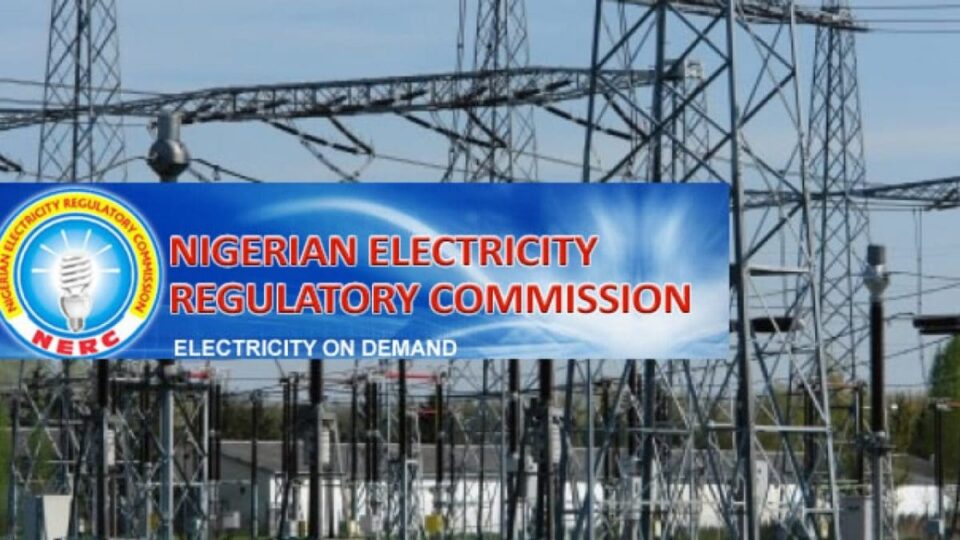By Chukwuma Okoli & Ndu Nwokolo
“Energy poverty is bad for humans, for economic development and job creation, and for the environment” – Opalo, April 9, 2024
With less than 5,000 MW of electricity generated from twenty-seven grid-connected power plants, consisting of nineteen (19) gas, four (4) hydro, two (2) steam, and two (2) gas/steam-powered plants, Nigeria is apparently an energy-poor country. Nigeria’s energy poverty has implications for its national development. A recent study has demonstrated that a weak power supply decreases the entry of new firms, reduces the productivity of existing firms, and stifles labour demand. Nigeria exemplifies this thesis as its energy poverty continues to refract in its unattractive economic indicators such as unemployment, lack of industrialisation, poverty among the teeming populace, etc. In an influential book – The Time-Travelling Economist: Why Education, Electricity and Fertility Are Key to Escaping Poverty – Charlie Robertson asserts that electricity is essential for countries to escape poverty and for industrialisation to happen, annual consumption of electricity per capita must average 300–500 kWh. With per capita electricity consumption of 142kWh, industrialisation in Nigeria would be as difficult as passing the camel through the eye of the needle. Empirical evidence shows that power outages in Nigeria are associated with a 5.7 percentage point increase in unemployment. Worried by Nigeria’s energy poverty and its attendant impact on development, since the return to civil rule in 1999, successive administrations have made efforts to jolt Nigeria out of energy poverty by increasing its electricity supply. Much of the efforts have focused on neoliberal strategies of privatisation, commercialisation and adoption of cost-reflective tariffs through subsidy removal in the power sector.
Although the power sector has been privatised, the Nigerian government is reported to have spent over ₦4.9 trillion in electricity subsidies in the past ten years. But, still in pursuit of Nigeria’s neoliberal strategy of adopting cost-reflective tariffs in the power sector, on Wednesday, April 3, 2024, Nigeria’s electricity regulator – Nigerian Electricity Regulatory Commission (NERC), approved an increase in tariffs for customers classified as Band A customers. With the increase, distribution companies (DisCos) were allowed to raise electricity prices to ₦225 ($0.15) per kilowatt-hour from ₦68.Even though it has been argued that the tariff increase would affect mainly the rich customers, some experts argue that theincrease in tariff may deepen the energy poverty in Nigeria,particularly among the poor households and small and medium enterprises who may not be able to afford the increased tariff(personal communication). The experience of Uganda supports the argument that the adoption of cost-reflective tariffs arising from neoliberal reforms in the power sector undermines electricity access and affordability for the poor. Apparently, reforms in Nigeria’s power sector have not delivered the promised efficiency, increased investment and accessibility toelectricity. Why is this so? With specific focus on the distribution value chain of Nigeria’s power sector, this edition of Nextier SPD Policy Weekly adopts the political settlement framework to conduct a political economy analysis of the powersector with a view to signposting why neoliberal reforms in the sector, particularly privatisation, is yet to deliver efficiency, attract investment and improve access to power.
- Political settlement and inefficiencies in Nigeria’s power sector
Political settlement is used as a political economy framework to explain how the distribution of power and influence of key actors in a sector shape the emergence of institutions and policies, as well as the performance and effectiveness of such institutions and policies. Political settlement is useful forexplaining why Nigeria’s power sector reform, particularly the privatisation of the National Electric Power Authority (NEPA),has failed to translate to improved power supply. The framework provides insight into how the powers and incentives of key players in the sector contribute to thwarting the expected outcome of the power sector reform.
Privatisation in Nigeria’s power sector commenced with the incorporation of NEPA as Power Holding Corporation of Nigeria (PHCN) in 2005. Following the successful incorporation, all the functions, assets, liabilities and staff of NEPA were transferred to PHCN, which was subsequently unbundled vertically into 18 successor companies: six generation companies, 12 distribution companies covering all 36 Nigerian states, and one national power transmission company. Between 2013 and 2014, the generation companies (GenCos) and distribution companies (DisCos) were privatised. The Nigerian government retained ownership of the transmission company for national security reasons (personal communication).
The privatisation of the GenCos and DisCos has not engendered increased investment in the power sector, efficiency and access to electricity as envisaged due to various reasons rooted in the interplay of influence and interests of actors in the sector. First, the influence and interests of politically connected firms in the privatisation process meant that the privatised GenCos and DisCos might not have been acquired by the most competent bidders. The acquisition of the GenCos and DisCos by politically connected actors also set the tone for attrition of the regulatory institution given that strict enforcement of reforms that threaten the interests of the emergent actors in the sector is likely to be very difficult to implement due to the influence of the actors involved. Thus, in the distribution value chain, a combination of weak regulation and the influence of actors enabled the discos to retain some form of quasi-monopoly over the high voltage and retail distribution despite the obvious inefficiencies over the years (Personal Communication). The monopoly and inefficiency of the discos thwarted investment in the distribution value chain. Between 2015 and 2021, the discos could only achieve 56 per cent or ₦258.29 billion of their expected capital expenditure investment projections of ₦465.19 billion. In the area of metering, Credit Advance Payment for Metering Implementation (CAPMI), introduced in March 2013 by NERC to enhance the deployment of meters to customers, was wound down on November 1, 2016, because of the inability of the DisCos to deploy meters. As of March 2016, only 403,255 meters had been disbursed and installed under the CAPMI scheme. The introduction of the Meter Asset Provider (MAP)Regulation by NERC in 2018 to enhance meter deployment andbridge the current metering gap in Nigeria did not change much because of the interests and influence of the actors in the distribution value chain, which frustrated the goals of MAP(personal communication). Hence, after over a decade of privatisation, metering remained huge as the total number of metered customers as of November 2023 was 5,799,095 out of the 13,112,134 total registered customers in Nigeria’s Electricity Supply Industry (NESI). Poor metering feeds into inefficiency inrevenue collection. A report by NERC shows that in the third quarter of 2023, the total energy received by all DisCos was 7,184.45GWh, while the energy billed to end-use customers was 5,682.11 GWh. Similarly, the total revenue collected by all DisCos in the same period was ₦267.61 billion out of ₦349.55 billion billed to customers. A report by Nextier Power put the collection losses among DisCos at 35 to 40 per cent of Aggregate Technical, Commercial and Collection Losses (ATC&C). Generally, the DisCos were able to retain dominance of the distribution value chain of the power sector despite their inefficiencies, thereby frustrating the objectives of the power sector reforms, which include, among other things, catalysation of investment, improved efficiency and increased access to electricity.
- Inefficiencies in Nigeria’s Power Sector: Implications for National Development
Charlie Robertson persuasively argued that no country can escape poverty without power. The inefficiencies in the power sector mean that improving the power supply in Nigeria has remained a mirage despite reforms in the sector. These inefficiencies negatively impact the country’s overall development.
It is estimated that over 80% of SMEs resort to generators to make up for grid shortfall. This resort to private generators feeds the growing black market for diesel and Premium Motor Spirit (PMS), which are smuggled into the country or purchased from illicit artisanal oil refineries in the Niger Delta that use stolen crude oil. The poorer consumers who loathe the inefficient billing system also resort to illegal connections or outright refusal to pay bills to the DisCos. In the agricultural sector, Nigeria’s energy poverty means that some agricultural activities like storage/preservation are badly affected because many farmers, especially those in rural areas, have very limited access to electricity. Moreover, Nigeria’s energy poverty explains why farming has remained at the subsistence level despite the large number of persons engaged in agriculture. For instance, in 2022, Nigeria’s post-harvest losses were estimated to be around ₦3.5 trillion annually. Such losses contribute significantly to Nigeria’s food insecurity and high prices, as food price stability is difficult to achieve. In the area of security, Nigeria’s energy poverty means that advanced security devices which require energy for effective operation may not be effectively deployed for security purposes. Energy security is a sub-set of national security and connects to national development as well.
- Recommendations: How to Jolt Nigeria Out of Energy Poverty
- State governments should use the Electricity Act 2023 to catalyse investment in the energy sector within their jurisdiction. The Act provides for states to license electricity generation, transmission, and distribution within their jurisdiction. Therefore, state governments should make an effort to pass enabling laws in this regard to attract investment in the power sector and deepen electricity within the state.
- There is a need for multi-stakeholder partnerships between the states, think tanks, and experts experienced in the power sector to build the capacity of the state governmentson how to attract investments in the power sector within the framework provided by the Electricity Act 2023.
- Governments at all levels, in partnership with development partners and the private sector in the energy ecosystem, should promote investment in off-grid power sources, such as skills, innovation, and solar energy use, to reduce the pressure on the national grid.
- The federal government may consider delaying the complete removal of the electricity subsidy pending when there is increased investment and efficiency across the value chain of the power sector.
- Nigeria needs to start defining energy issues from a national security context, applying all the sanctions and deploying rudimentary levels of national security to its energy security needs. This, therefore, will connect Nigeria’s national development to its National security.
- Policy Recommendations
- State governments should use the Electricity Act 2023 to catalyse investment in the energy sector within their jurisdiction.
- There is a need for multi-stakeholder partnerships between the states, think tanks, and experts experienced in the power sector to build the capacity of the state governmentson how to attract investments in the power sector within the framework provided by the Electricity Act 2023.
- Governments at all levels, in partnership with development partners and the private sector in the energy ecosystem, should promote investment in off-grid power sources.
- The federal government may consider delaying the complete removal of the electricity subsidy pending when there is increased investment and efficiency across the value chain of the power sector.
- Nigeria needs to start defining energy issues from a national security context, applying all the sanctions and deploying rudimentary levels of national security to its energy security needs.
- Conclusion
Nigeria is still energy-poor because the influence and interests of key actors in the power sector stifle the goals of power sector reform, particularly in the sector’s distribution value chain. The inefficiencies in Nigeria’s power sector negatively impact national development due to power’s critical role in national development. The Electricity Act 2023 holds some promise for the power sector, but all hands must be on deck to ensure that opportunities offered by the Act are exploited to jolt Nigeria out of energy poverty.
(Dr. Chukwuma Okoli is an Associate Consultant at Nextier and a Political Science lecturer at Nnamdi Azikiwe University, Awka, Nigeria; while Dr. Ndu Nwokolo is a Partner at Nextier and an Honorary Fellow at the School of Government at the University of Birmingham, UK.)



